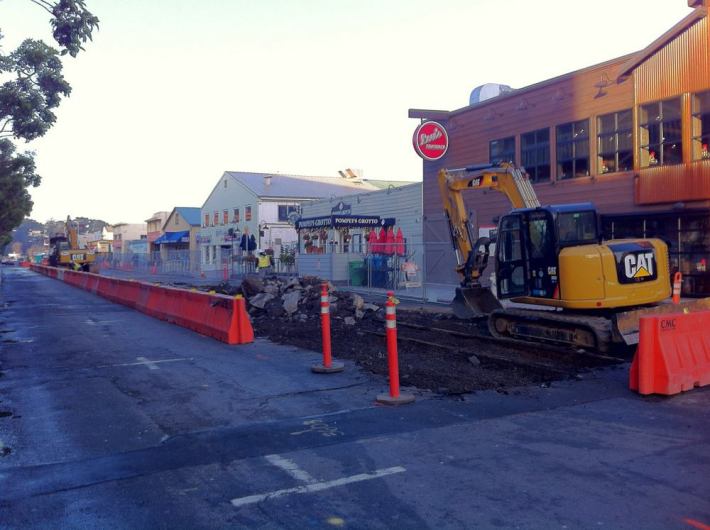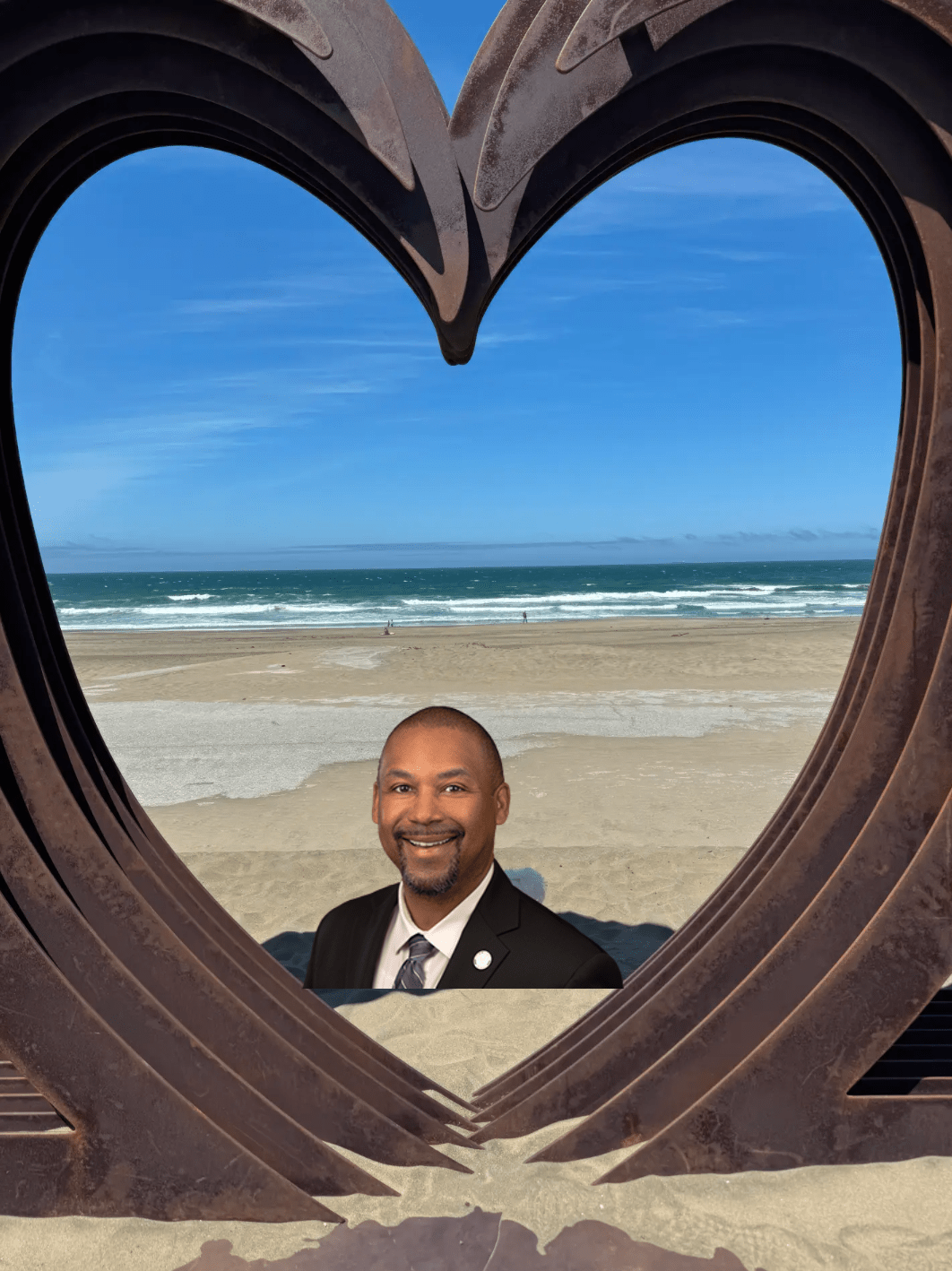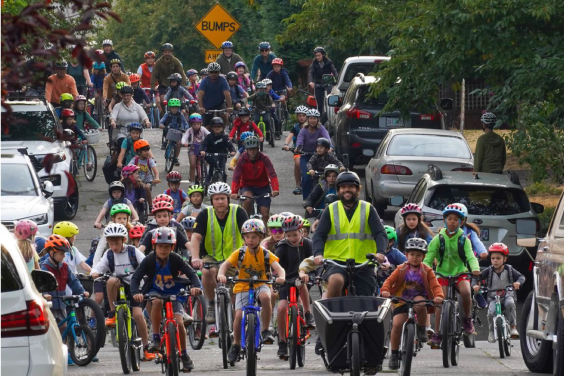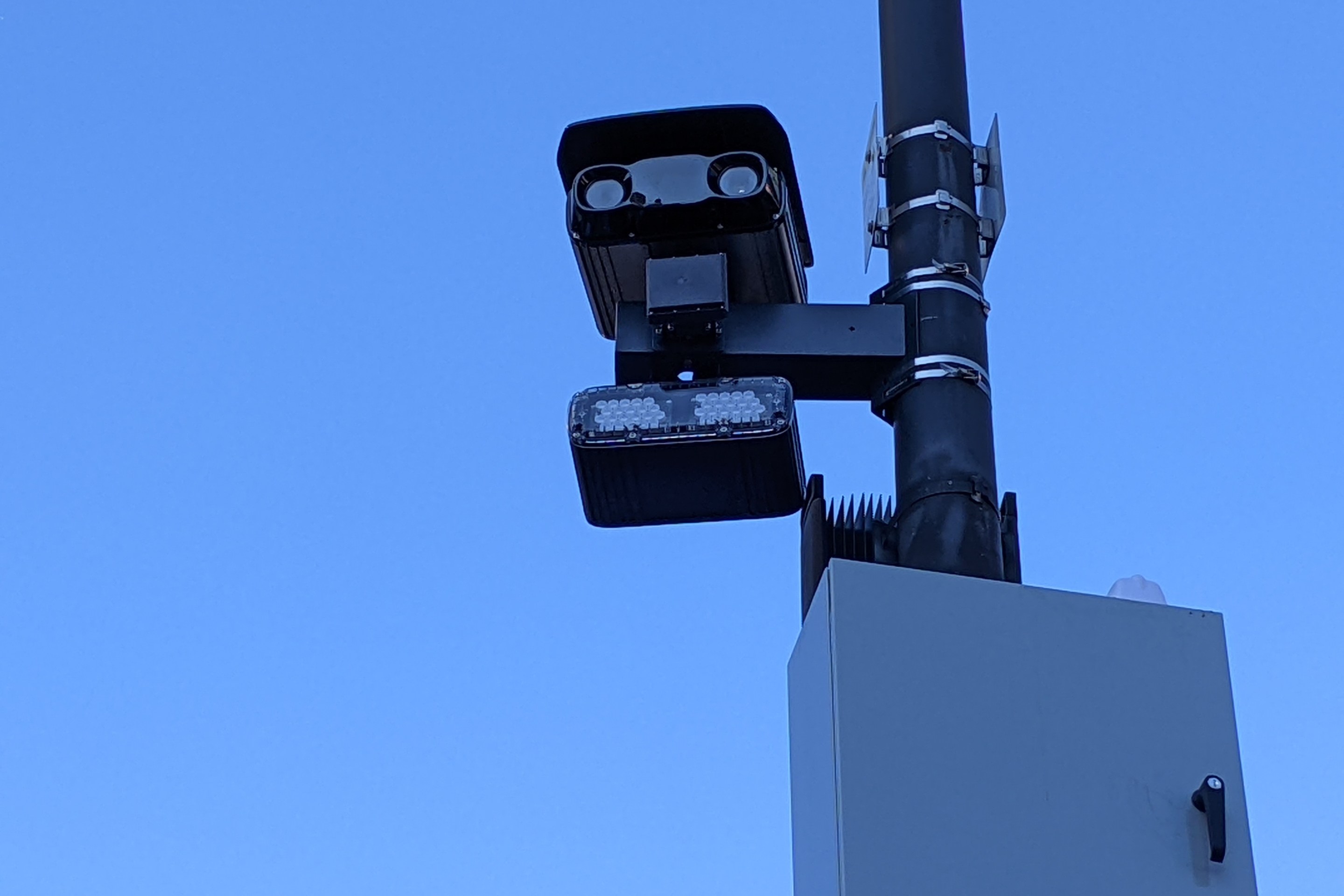Crews began work yesterday on an overhaul of Jefferson Street in Fisherman's Wharf that will expand pedestrian space, reduce the number of cars, and create a more welcoming public realm for the throngs of tourists that regularly crowd the street. Improvements on the first two blocks of Jefferson, between Jones and Hyde Streets, were fast-tracked for completion in time for America's Cup, which is set to begin on July 4. Construction was originally scheduled to begin in October, but it was pushed back to January for unspecified reasons.
The project, designed with the help of Danish architect Jan Gehl, is expected to transform Jefferson into the kind of popular pedestrian-oriented streets that are found many in cities across the world, but are few and far between in San Francisco, as the San Francisco Business Times noted back in June:

The remade Fisherman’s Wharf will recall — but not try to copy — other noted areas where strolling and biking are the main way to get around a shopping/eating district, like Santa Monica’s Third Street Promenade or Miami Beach’s Lincoln Road.
“It’s not being done to make it like Disneyland,” said Troy Campbell, executive director of the Fisherman’s Wharf Community Benefit District. It was important to shopkeepers and other longtime residents of the area that Fisherman’s Wharf maintain its character, Campbell said.
“On a busy day, it should feel like an outdoor plaza, an urban living space,” said Neil Hrushowy, project manager in the city’s Planning Department.
The remake will be paid for with money from the Department of Public Works, he said.
Some local merchants said they looked forward to seeing the final product. The design firms hired by the city, Gehl Architects from Copenhagen and ROMA Design Group of San Francisco, drew inspiration from big cities around the world.
“What happens (in San Francisco) is we tend to think about what we know and we don’t really think about what has been successful in other cities,” said Tom Creedon, president of Scoma’s restaurant, which has been on Fisherman’s Wharf since the 1960s. “The trend is getting people out of their cars and walking in the streets.”
Although previous iterations of the plan called for a pedestrianized street without curbs, where cars would share a pedestrian-priority space, the final plan instead includes one narrow traffic lane in each direction, and no car parking. Design features like special pavement treatments should keep car traffic tamed at slow speeds and deter drivers from using the street, making it more comfortable to use on bike and foot.
A revamp of Fisherman's Wharf has long been needed, and this project has been in the works since 2006. As Gehl noted at a San Francisco event in 2009, California's second most-visited tourist attraction hasn't changed much since he visited it in the 1980's: "Now it's like deja vu; it's exactly like I remember it 25 years ago," he said.
Beyond the first two blocks, no timeline is available for completion of the rest of the project.






